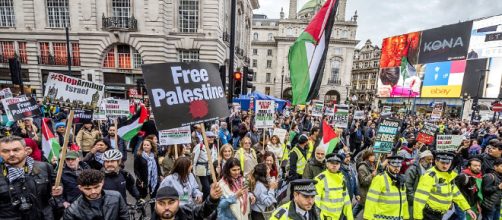PREVENT, the UK’s counter extremism policy, has been significantly impacting the ability for students to partake and organise events for Palestinian activism. Last year, in 2017, the Middle Eastern Eye revealed the extent to which the government are going to shut down debate on British foreign policy within the region.
University staff are being advised to "risk-assess and manage" events on campus relating to "contentious" issues including Palestine and criticism of Western foreign policy in the middle east in order to demonstrate their compliance with the government's Prevent counter-extremism strategy.
Anti-Muslim legislation
Some of the supposed contentious issues that the government have listed include, vocally supporting Palestine, opposing the illegal settlements in Gaza, criticising the wars in the Middle-East and opposing the Prevent program. Within recent weeks, this has come to the forefront again because this also directly links to legislation that defines anti-Semitism as criticism of Israel.
The legislation states that the Prevent strategy aims to stop people from becoming terrorists but the impact on these societies since its introduction and the change in anti-Semitism laws last year, severely impact Palestinian societies across universities country-wide. This is a form of suppression of information and shutting down debate.
The legislation by the government is clearly targeted the Muslim community, with the Muslim Council of Britain publishing a report in 2016 title ‘The Impact of Prevent on Muslim Communities’. Whilst the report is old, there has been very little to no movement to improve the concerns that were outlined and with anti-Muslim ideals growing amongst the British public, the Uk Government seem insistent on manufacturing anti-Semitism stories where there aren’t any, on the man who is likely to tackle the issues above.
The four issues the MCB outlined were, the fundamental approach is problematic and lacks an evidentiary base. A rapidly growing notion of what constitutes extremism which discourages free speech.
“Suspect communities” are created, fuelling Islamophobia and a lack of transparency and accountability leads to greater suspicion. If the government were serious about tackling both anti-Semitism and Islamophobia, there would be a rapid change in foreign and domestic policy that currently censors humanitarian activism.

